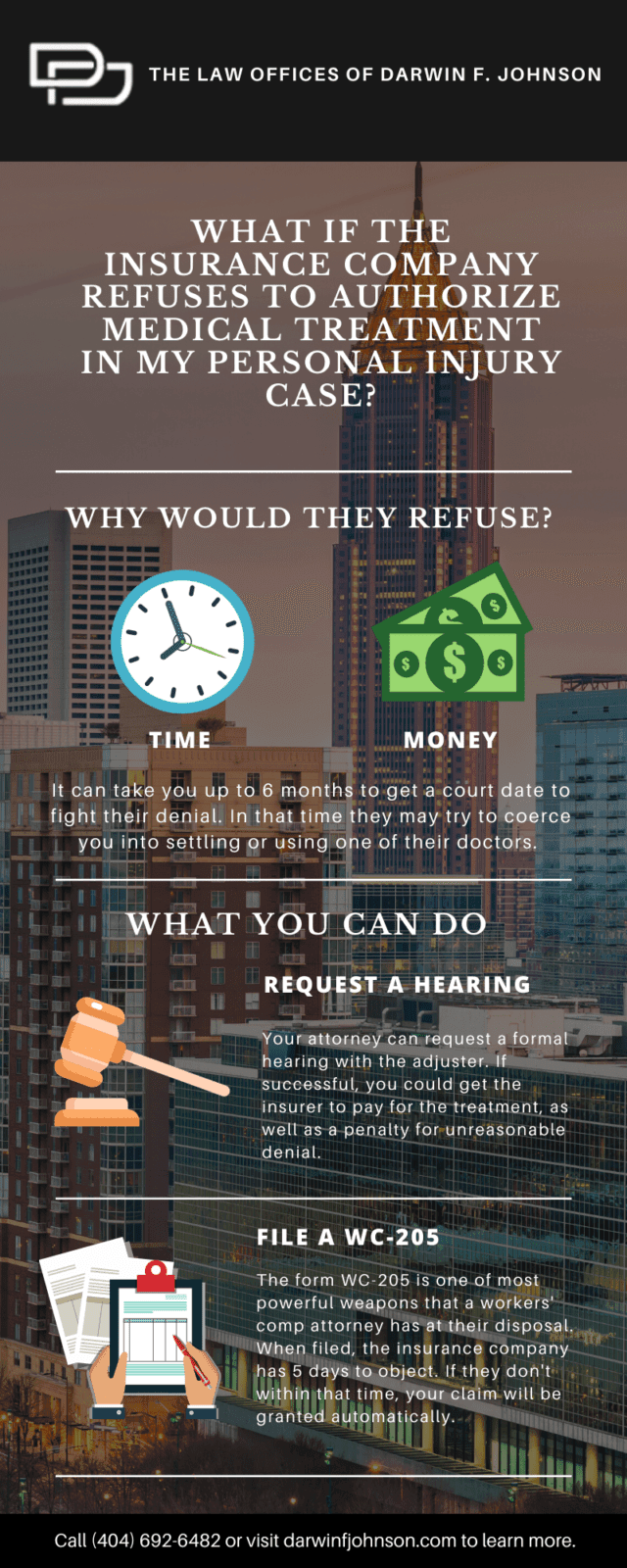If you are injured on the job and receiving treatment through workers’ compensation, you are likely consulting what’s known as an authorized treating physician. This is essentially a legal term for the doctor that your employers’ insurance company has approved to handle your treatment.
The authorized treating physician has a unique power in workers’ compensation cases — the ability to refer you to specialists for further treatment. Trying to authorize treatment or test from a specialist yourself is usually impossible, but referrals from your authorized treating physician should be automatically approved. Sometimes, however, the insurance company will refuse to authorize payment for the treatment when the doctor’s office reaches out.
If this happens to you or a loved one, you may be wondering what, if anything, you can do about it. Fortunately, you have options — and a competent Atlanta workers’ compensation attorney can help you explore them. Here’s what every employee should know about why insurers fight you and what can be done about it:

Why Might the Insurer Refuse to Authorize?
There doesn’t always need to be a legally valid reason for an insurance company to refuse authorization initially. They will more than happily do so knowing that a workers’ compensation judge will eventually side with you. The reason for this is time. Getting a court date to fight a denial can take at least three months, in which insurers can negotiate for a lower settlement or try and get you to switch to another doctor from their approved list.
Insurance companies know that they have the upper hand when it comes to resources, and given enough time, it can be difficult to contest them.
Request a Hearing
If an insurer has denied you reasonable and necessary care, one option you have is to request a hearing. The first step of this process is to reach out to the adjuster in good faith to get the payment authorized. If this effort is rebuffed, you and your lawyer can formally request a hearing to get the care paid for. If it’s successful, the insurer may also have to pay for your attorney’s fees and a penalty for the initial unreasonable denial.
File a WC-205
Hearings aren’t the only recourse you have against unfair rejection from insurance adjusters; injured workers in Georgia can get claims authorized through a WC-205. This form is published by the state workers’ compensation board and allows the authorized treating physicians in these cases to approve a specific treatment or test. The most significant advantage of the WC-205 is that once it is filed, the insurer has five days to cite a particular reason for the treatment being denied. If no reason is given within this period, the treatment is automatically approved.
Employers and their insurance companies are armed with resources in workers’ compensation cases, but you can arm yourself with the help of a reliable workers’ compensation attorney. Contact The Law Offices of Darwin F. Johnson to learn more about expert legal representation regarding your workers’ compensation case.
The post What Can I Do If an Insurance Company Refuses to Authorize Medical Treatment? appeared first on The Law Offices of Darwin F. Johnson.
